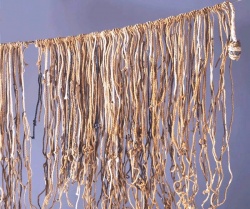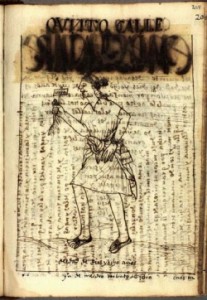Indigenous Speech, Representation, and the Politics of Writing
Led by Profs. Ellen Cushman and Rocío Quispe-Agnoli, Michigan State University
Departing from typical constructions of systems of communication and the notions of “literacy” at large, this seminar examines the relationship between Indigenous languages of the Americas and the politics of their writing before and after the arrival of the Europeans in 1492. This seminar explores scholarship in native Americas, indigenous language, and studies of colonialism with three questions in mind: (a) how has the acquisition of alphabetic script impacted (Latin) American indigenous communities, primarily its effects on identities, languages, and cultural institutions;(b) what knowledge is produced today about these communities and their changing responses to what they consider local and global languages and identities; and (c) how have indigenous communities used global networks to advance their own ideas regarding cultural maintenance and language preservation?
Framed in ongoing discussions of decolonizing thought, we discuss several forms of writing, record keeping and representational systems, tracing the long history of meaning making in the Americas. We pay special attention to Andean and Iroquoian systems of representation as examples of key moments of resistance to the alphabetic influence and the civilizing force of the letter. Along the way, we highlight the methodological difficulties of removing an alphabetic lens to see writing systems in their own right.
While primarily drawing upon the Newberry’s extensive collections, especially the Edward Ayer and the Everett Graff collections, we will also visit the Field Museum, the Art Institute of Chicago, and the University of Chicago’s Oriental Institute, to contextualize Americas Indigenous writing and literacy in the larger America and global contexts of the history of writing.
We encourage applicants interested in indigenous meaning making practices no matter the discipline: Humanities students can find ample opportunity to study visual, material, and symbolic representations; History students can explore the tensions of colonial and indigenous struggles for making and disseminating knowledge; and archeology and Anthropology students will be introduced to a wide range of material forms of representation and will explore their value; students of English, Linguistics, American Studies, and Latin American Studies will have the opportunity to study visual and written rhetorical expression of Indigenous authors across the hemisphere and find overlooked links among their works.
Students will propose and undertake research using the Newberry’s collections (and, if applicable, artifacts from the collections of the museums mentioned above) and will write an original research paper to be presented in a conference at the conclusion of the seminar. Participants will be encouraged to either incorporate their findings in the dissertation projects and/or to revise their papers for publication in academic journals of their field.
Each NCAIS institution is entitled to one slot to the summer institute, which will have a maximum of eighteen participants. The selection process of each member institution’s NCAIS Summer Institute participant is according
to the individual program needs and existing protocols of the member institution. Housing will be provided for free at Canterbury Court Apartmentsand a maximum of $500 travel expenses will be reimbursed to all participants. Students will also receive $500 stipend. Students should apply directly to their NCAIS Faculty Liaison by April 4, 2014.




